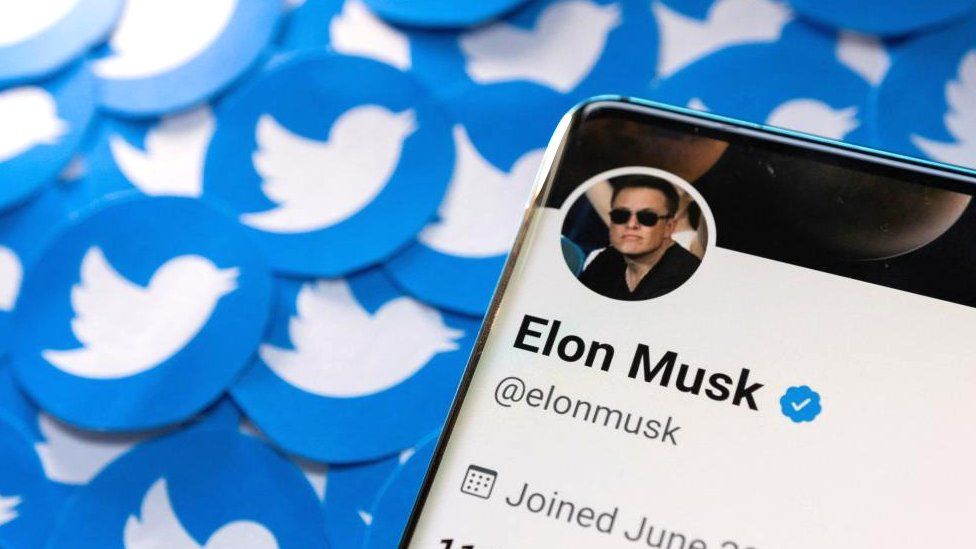Twitter started limiting how many tweets its users could read on Saturday.
Elon Musk stated in a tweet that verified users could read 10,000 tweets, compared to 1,000 for unverified users.
Screenshots of messages indicating that users had "exceeded" their daily limit of tweets started to circulate online.
Elon Musk was restricting user activity, which is seemingly unthinkable for a social media company.
Executives in advertising are perplexed by the action.
Elon Musk is engaged in a conflict with AI companies, which is a much larger game.
Let's begin by talking about Twitter's actual revenue model. Like Meta and Google, the vast majority of its income comes from advertising.
Ads are presented to users as soon as they access the platform. They see more advertisements the longer they use Twitter. The formula is quite straightforward. That is the deal.
Elon Musk, however, has typically avoided advertising. Tesla is renowned for not running ads.
He tweeted "I hate advertising" in 2019.
And yet he purchased a business that is entirely dependent on it.
Elon Musk is therefore desperate to create new revenue sources.
This is not just a commercial choice. He thinks that when it comes to moderation, advertisers have too much influence over social media companies.
Advertisers have pulled their money from Twitter in the past.
Advertisers don't want their ads next to content that is racially or ideologically extreme. Thus, Twitter's primary source of income has an impact on how much "free speech" is permitted on the platform.
In April, Mr. Musk informed me that after initially pausing their Twitter advertisements following his takeover, "most" of the advertisers had returned.
But Mr. Musk has a different strategy in mind to make Twitter profitable.
He wants Twitter to profit from the enormous amount of data it has.
A huge resource for AI companies, websites like Twitter and Reddit contain hundreds of billions of real human conversations.
Large language models (LLMs) are able to learn from these interactions and develop more empathetic ways of answering queries.
However, websites like Twitter and Reddit demand payment for this use of their data.
Reddit's CEO Steve Huffman expressed his dissatisfaction with what AI companies were doing in April to the New York Times.
He declared, "The Reddit corpus of data is really valuable. But we don't have to provide all of that value for nothing to some of the biggest businesses in the world. ".
Elon Musk complained about Microsoft at about the same time, saying that the company was "stealing the Twitter database, demonetizing it (removing ads), and then selling our data to others.".
On Saturday, it was evident how irritated Mr. Musk was.
He claimed, "We were getting data pillaged.".
From start-ups to some of the largest corporations on Earth, "almost every company doing AI was scraping vast amounts of data," he claimed.
Elon Musk intends to stop its data from being incorporated into LLMs by limiting usage. He wants to bargain with AI businesses so that he can be compensated for the content that they steal.
However, there might be additional factors at work as well, and this relates to yet another of his initiatives to lessen Twitter's reliance on advertising income.
Mr. Musk is pleading with users to pay for Twitter.
He has been attempting to persuade people to use Twitter Blue for months. Giving Twitter Blue subscribers a blue tick and verification was the carrot, and disabling verification for non-paying users was the stick.
But Elon Musk's vision for Twitter Blue has not come to pass. Not many people are making full payments.
Maybe he's considering another strategy to entice customers to take out their wallets. Perhaps there will be a monthly fee in the future if you want access to an unlimited number of tweets?
Whatever Elon Musk may be contemplating, one thing is certain. Twitter restrictions are bad for advertisers.
For users and advertisers already alarmed by the "chaos" at Twitter, the limits are "remarkably bad," according to Mike Proulx, research director at Forrester, who spoke to Reuters.
The most puzzling aspect of Elon Musk's limitations is probably this one. He most recently appointed Linda Yaccarino as Twitter's CEO. She was formerly a director of advertising.
She reportedly has lofty ideas for how Twitter can increase its revenue, including full-screen video ads and wooing more famous people to use the service.
Having a limited number of tweets makes her job much harder. Advertisers will be less interested in spending money if there are fewer eyes on posts.
Meta is another factor.
A Twitter clone called Threads is reportedly being launched by Mark Zuckerberg this summer. There is absolutely no chance that its feed or the number of posts you can read will be constrained. That's not how Meta operates.
Elon Musk is a phenomenally successful businessman who genuinely dislikes the way AI companies steal its data. The events this past weekend, however, have been yet another puzzle.







